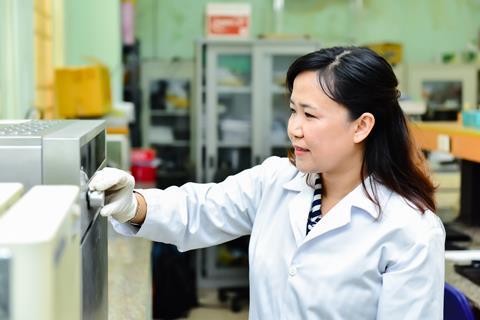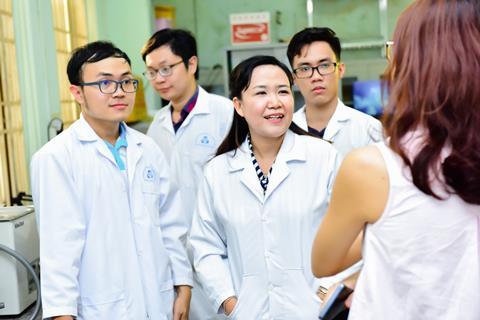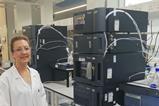Van Thi Thanh Ho is driving commercialisation and inspiring new generations of scientists with her passion for green technology

For Vietnamese professor Van Thi Thanh Ho, the transition to green technology ‘is not an option, it’s a necessity’.
The researcher has made a name for herself in sustainable chemistry since first filing a patent for a new hydrogen fuel cell catalyst developed during her PhD. Today she is setting her sights on commercialisation, while also giving back to her country by training up the next generation of scientists working in green energy.
Ho first became interested in sustainability when embarking on her PhD in 2008, at a time when few others in Vietnam were interested in the topic. ‘When I worked with green technology more than 10 years ago no one mentioned it much. But in my opinion I think it’s very interesting,’ she says. ‘If we don’t transition to green technology we will face very serious challenges in the future.’
Catalysing a field of research
Her decision took her to the National Taiwan University of Science and Technology in Taipei (Taiwan Tech), Taiwan, to carry out a PhD in chemical engineering. It was to be a fruitful endeavour. She developed and patented a new catalytic material for fuel cells that was more stable and active than those that existed commercially. Her work today still builds on this research.
In Taiwan, Ho was well-supported, with funding and access to machines and equipment, and she continued on to a postdoctoral position. But when she moved back to Vietnam after two years, she found the research environment markedly different.
‘I wanted to keep working [in green technology] but it was difficult, very difficult,’ she says. There was little funding in Vietnam for green technologies and the facilities to continue her research didn’t exist, nor the scientific expertise. While Ho could have switched her research focus to something that was better supported, it felt like a waste. She wanted to bring the knowledge she had gained abroad back to her own country.
‘If I gave up my research direction, how will my country follow up with the technology? How can young scientists like me practice and apply the technology?’ she says. ‘So many people like me can’t follow their research when they come back to the country because they cannot overcome these big challenges.’ It was something she had to figure out step by step.
Building a team, collaborations and equipment
Over the course of a year Ho secured project funding from the government in Vietnam and international sources to research, train and build up her group. She home-made research equipment to save on the cost of buying it new and developed international collaborations to enable her to study the materials she worked on.

Her dedication paid off. Ho had returned to a lecturer position at the department of chemical engineering in Ho Chi Minh City University of Technology; in 2014 she was appointed head of the department of R&D and external relations at the Ho Chi Minh City University of Natural Resources and Environment. In 2016, at the age of 36, she was recognised as an associate professor by the State Council for Professors and in 2022 she was named one of L’Oréal-Unesco’s Women in Science International Rising Talents. Ho is currently associate professor at the Institute of Interdisciplinary Sciences, Nguyen Tat Thanh University.
When Ho first returned to Vietnam, she promised herself she would build up a research group similar to that she found at Taiwan Tech. Today there are 10 researchers and students in her group – over her career she has supervised around 50 researchers. Ho takes care to ensure her students have access to materials, facilities and funding. ‘When I was young I faced challenges [like] how to buy the chemicals and so on,’ she says. ‘So when students train with me they don’t [need to] care [about that].’ Inspired by the support that was given to her during her PhD, Ho also teaches her students how to write reports and give presentations. Researchers from her group have gone on to receive postgraduate scholarships in Canada, the US, Australia, Korea and Taiwan, an achievement she is rightfully proud of.
Today Ho continues to be a strong voice for green technologies. She is now looking to work with industry to scale up and commercialise her research – a major focus is to make the catalytic materials she develops cheaper. She points out that the price of a single gram of platinum, an important component in the fuel cells she works with, costs the same as a basic lecturer’s salary in Vietnam.
Ho’s passion for driving research into sustainable energy shows no sign of waning. ‘Ten years ago I thought we needed to protect the environment and protect the planet so I followed my thinking and applied to study [sustainable solutions]. But now it’s not an option,’ she says. ‘We have to move to green technology.’

















No comments yet